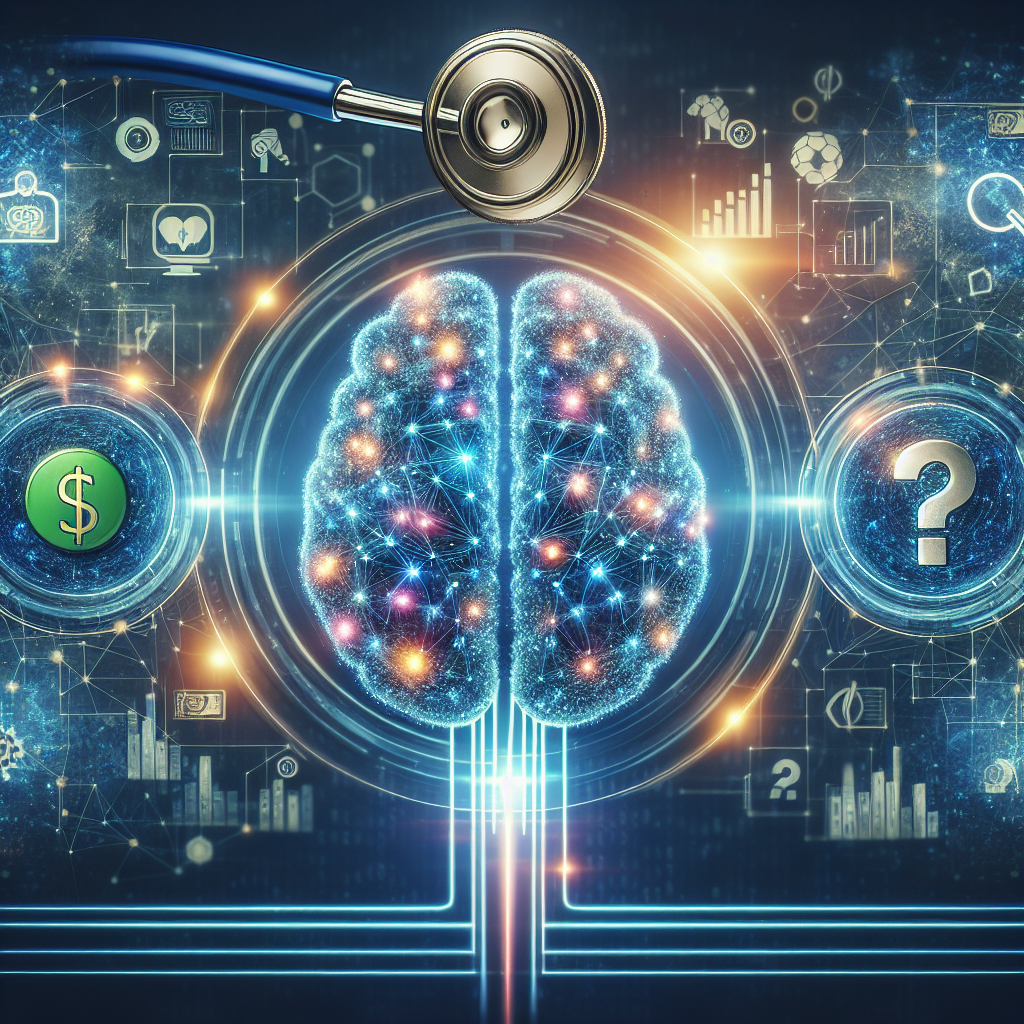Advances in Artificial General Intelligence (AGI) have the potential to revolutionize various industries, including healthcare, finance, and more. AGI refers to a type of artificial intelligence that can understand, learn, and apply knowledge across a wide range of tasks, much like a human being. This level of intelligence goes beyond the capabilities of current AI systems, which are typically limited to specific tasks or domains.
In this article, we will explore the impact of AGI on healthcare, finance, and other industries, and discuss what we can expect in the near future. We will also address some frequently asked questions about AGI and its implications.
The Impact of AGI on Healthcare
Healthcare is one of the industries that stand to benefit the most from the development of AGI. With its ability to analyze complex medical data, identify patterns, and make accurate predictions, AGI can significantly improve the quality of care and patient outcomes.
One of the key areas where AGI can make a difference is in medical diagnosis. By analyzing patient data such as medical history, symptoms, and test results, AGI can help doctors make more accurate and timely diagnoses. This can lead to earlier detection of diseases, better treatment plans, and ultimately, improved patient outcomes.
AGI can also revolutionize the field of personalized medicine. By analyzing genetic data and other factors, AGI can help doctors tailor treatment plans to individual patients, taking into account their unique characteristics and needs. This can lead to more effective treatments, fewer side effects, and better overall health outcomes.
In addition to diagnosis and treatment, AGI can also be used to optimize healthcare operations. By analyzing data on patient flow, resource allocation, and other factors, AGI can help hospitals and healthcare providers improve efficiency, reduce costs, and provide better care to patients.
Overall, the impact of AGI on healthcare is expected to be transformative, leading to improved patient outcomes, more personalized care, and better overall healthcare delivery.
The Impact of AGI on Finance
The finance industry is another sector that can benefit greatly from the development of AGI. With its ability to analyze vast amounts of data, detect patterns, and make accurate predictions, AGI can help financial institutions make better decisions, reduce risks, and improve performance.
One area where AGI can make a significant impact is in trading and investment. By analyzing market data, economic indicators, and other factors, AGI can help traders and investors make more informed decisions, identify profitable opportunities, and optimize their portfolios. This can lead to higher returns, reduced risks, and better overall performance.
AGI can also be used to detect fraud and financial crimes. By analyzing transaction data, customer behavior, and other factors, AGI can help financial institutions identify suspicious activities, prevent fraud, and protect against cyber threats. This can lead to improved security, reduced losses, and better overall risk management.
In addition to trading and security, AGI can also be used to improve customer service in the finance industry. By analyzing customer data, preferences, and feedback, AGI can help financial institutions personalize their services, offer targeted recommendations, and provide better overall customer experiences.
Overall, the impact of AGI on finance is expected to be significant, leading to improved decision-making, reduced risks, and better overall performance for financial institutions.
What to Expect in the Future
As AGI continues to advance, we can expect to see even greater impacts on healthcare, finance, and other industries. Some of the key developments to watch for in the near future include:
– Improved diagnostic accuracy: AGI will continue to enhance the accuracy of medical diagnoses, leading to earlier detection of diseases and better treatment outcomes.
– Personalized medicine: AGI will enable more personalized and tailored treatment plans for individual patients, leading to better health outcomes and reduced side effects.
– Enhanced trading and investment strategies: AGI will continue to improve trading and investment strategies, leading to higher returns and reduced risks for investors and financial institutions.
– Better fraud detection: AGI will enhance the ability to detect fraud and financial crimes, leading to improved security and reduced losses for financial institutions.
– Enhanced customer service: AGI will enable more personalized and targeted customer service in healthcare, finance, and other industries, leading to better overall customer experiences.
Overall, the future of AGI looks promising, with the potential to revolutionize a wide range of industries and improve the quality of life for people around the world.
FAQs
Q: What is the difference between AGI and other types of artificial intelligence?
A: AGI refers to a type of artificial intelligence that can understand, learn, and apply knowledge across a wide range of tasks, much like a human being. This level of intelligence goes beyond the capabilities of current AI systems, which are typically limited to specific tasks or domains.
Q: How will AGI impact healthcare and finance?
A: AGI has the potential to revolutionize healthcare by improving medical diagnosis, personalized medicine, and healthcare operations. In finance, AGI can help traders and investors make better decisions, detect fraud, and improve customer service.
Q: What are the key developments to watch for in the future of AGI?
A: Some of the key developments to watch for in the future of AGI include improved diagnostic accuracy, personalized medicine, enhanced trading and investment strategies, better fraud detection, and enhanced customer service.
Q: How can businesses prepare for the impact of AGI?
A: Businesses can prepare for the impact of AGI by investing in research and development, training employees on the use of AGI technologies, and adapting their business models to take advantage of the benefits of AGI.
In conclusion, the development of AGI has the potential to revolutionize healthcare, finance, and other industries, leading to improved outcomes, reduced risks, and better overall performance. By understanding the impact of AGI and preparing for its implementation, businesses can position themselves for success in the age of artificial intelligence.

